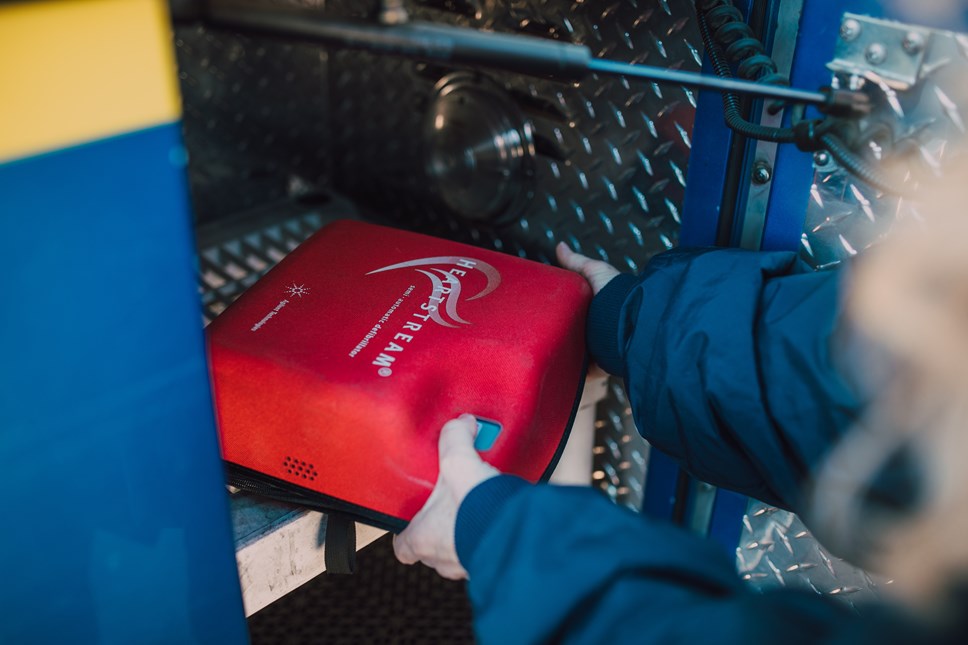
‘We are committed to improving community access to defibrillators to boost cardiac arrest survival rates,' vows Health Minister
Y Gweinidog Iechyd yn dweud: ‘Rydym wedi ymrwymo i wella mynediad at ddiffibrilwyr yn y gymuned er mwyn cynyddu’r nifer sy’n goroesi ataliad ar y galon’
Health Minister Eluned Morgan has announced an additional £500k to improve community access to defibrillators and boost out of hospital cardiac arrest survival rates.
The money will go towards enabling the likes of community buildings and sports grounds to access a defibrillator.
A patient’s chance of surviving an out of hospital cardiac arrest decreases by an estimated 10 per cent with every passing minute.
By increasing the availability of them in community settings it is hoped to improve the survival rates of those suffering a cardiac arrest outside of a hospital.
It comes after a spotlight was thrown on cardiac arrests this summer with a number of high profiles deaths, including some sadly in Wales.
In July, Welsh Government approved further funding of £2.5m over the next three years for Save a Life Cymru. This will enable further awareness-raising, fund new educational and training resources and improve public access to defibrillators.
There are currently 5,423 public access defibrillators registered with Welsh Ambulance Service Trust and the Circuit (the national defibrillator network), whilst every year in Wales around 6,000 people suffer sudden cardiac arrest.
Health Minister Eluned Morgan, who will be discussing access to defibrillators during a Senedd debate later today (Wednesday), said: “Survival rates for cardiac arrests outside of a hospital setting are low in Wales, but there is the potential for many more lives to be saved
“I fully support calls for more defibrillators and that is why I have fought for additional funding of £500k to improve community access to defibrillators.
“Not only do we need a comprehensive network of defibrillators, but also to ensure that members of the public are equipped with the skills and the confidence to use them, as well as CPR skills in the event a defibrillator is not available.
“Every second counts when someone goes into cardiac arrest. We can all help raise awareness of the importance of early CPR and defibrillation.”
Notes to editors
- Every minute of delay before defibrillation reduces the probability of survival to discharge by 10%–12%. However, when bystander CPR is provided, the decline in survival is more gradual, averaging 3–4% per minute.
- The most important factors in the response to an OHCA are early recognition, early cardiopulmonary resuscitation (CPR) and – in particular – early defibrillation, followed by appropriate hospital care.
